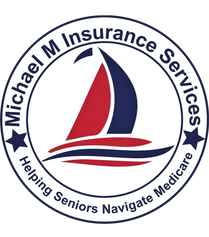Yes, some Programs Are Income Tested To Help Lower The Cost Of Your My Medicare.
How to Get Help Paying for Part D Medications: A Guide for My Medicare Beneficiaries
My Medicare Navigating the complexities of My Medicare can often feel like trying to find your way through a maze, particularly when it comes to understanding how to manage the costs associated with Part D medications. For many Medicare beneficiaries, the financial aspect of healthcare is a significant concern, but there are options available to help manage these costs. This blog post aims to shed light on the paths you can take to receive assistance with your Part D medication expenses.
Understanding My Medicare Part D
Medicare Part D is the prescription drug benefit of Medicare, available to anyone with Medicare. It helps cover the cost of prescription drugs, including many recommended shots or vaccines. Part D plans are run by Medicare-approved private insurance companies, which means coverage and costs can vary widely from one plan to another. However, understanding your options can make a big difference in how much you pay for your medications.
Assistance with My Medicare Part D Costs
1. State Medicaid Assistance
Check with your State about Medicaid. If you qualify for Full Medicaid, Medicaid will pay the cost share of your Medications and Health Care, including copays and deductibles. If you don’t qualify for Full Medicaid, you may qualify for Partial Medicaid and get your Part B premium paid for.
2. Extra Help Program
One of the primary resources for Medicare beneficiaries is the Extra Help program. This program is designed to help people with limited income and resources pay Medicare prescription drug program costs, like premiums, deductibles, and coinsurance. To qualify for Extra Help, individuals must meet certain income and resource limits.
3. State Pharmaceutical Assistance Programs (SPAPs)
Many states offer their pharmaceutical assistance programs to help residents pay for medications. The eligibility criteria and benefits vary by state, so it’s essential to check with your state’s health department or visit the Medicare website for more information.
4. Manufacturer’s Patient Assistance Programs
Several pharmaceutical companies offer assistance programs for the medications they manufacture. These programs, often called Patient Assistance Programs (PAPs), may provide medications at a lower cost or even for free to individuals who qualify. Each program has its own eligibility requirements, usually based on income, insurance status, and prescription drug needs.
5. My Medicare Savings Programs (MSPs)
For those who find it challenging to afford their Part D premiums, Medicare Savings Programs may be able to help. These programs are designed to help pay for Medicare Part A and Part B premiums, and in some cases, Part D premiums, deductibles, and copayments as well.
Navigating Your Options
To find the best assistance option for your situation, start by reviewing your current Part D plan. Make sure you are in the most cost-effective strategy for your medication needs. You can compare plans using the Medicare Plan Finder tool at Medicare.gov or consult with a Medicare counselor through the State Health Insurance Assistance Program (SHIP).
Remember, applying for these assistance programs may require you to provide information about your income, assets, and expenses, so having this information readily available will make the process smoother.
Conclusion
While the cost of Part D medications can be a significant burden for many Medicare beneficiaries, there are several paths to finding financial relief. By exploring programs like Extra Help, SPAPs, PAPs, and MSPs, you can find ways to manage your medication costs more effectively. Don’t hesitate to reach out for help or guidance.
For anyone navigating the waters of Medicare and trying to manage the costs associated with Part D medications, remember assistance is available. By taking advantage of these programs, you can ensure that your health needs are met without compromising your financial well-being.
Frequently Asked Questions
Do I automatically get enrolled in a Rx Assistance Plan?
Is L.I.S. The Low Income Subsidy (Extra Help) offered by my State?
What are State Pharma Plans?
Do I Have To Pay an Rx Deductible?
Do All Part D Rx Plans Cover All Meds?
What If I Get On A New Med That My Plan Doesn't Cover?
Mike Miligi- Owner

